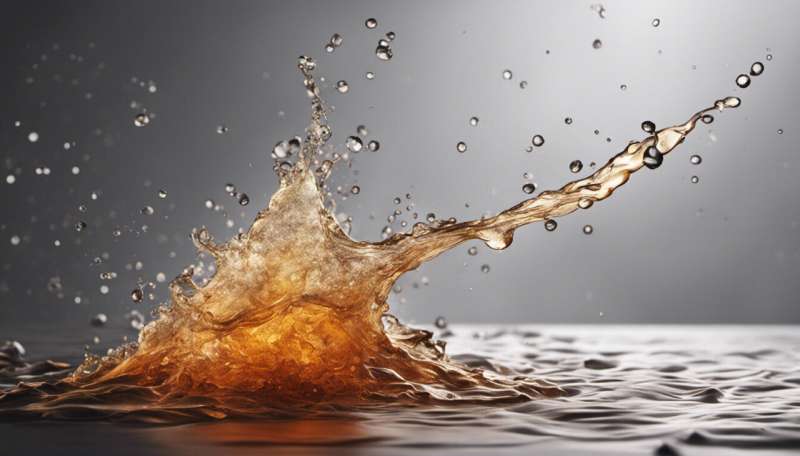Opinion: Why mix alcohol with energy drinks?

It is that time of year when schools and universities are breaking up from exams and when young people start to party and unwind from the pressures of the year. Curtin University's Julia Stafford considers the harmful effects that some party activities—drinking alcohol mixed with energy drinks— can have on young people.
Energy drinks, the products that are supposed to 'give you wings' and 'improve you a bit' may also give you elevated blood pressure, agitation, sleep disturbance, dental caries, arrhythmia and other unwanted physiological effects.
While the evidence for these side effects is substantial, they are unlikely to feature in energy drink marketing slogans anytime soon.
Add to that the broad range of risks associated with excessive alcohol use, which is exactly what some drinkers are doing, and you've got a concerning combination. In Australia, one in two young adults report consuming alcohol mixed with energy drinks (AMED).
As we move into summer and as many celebrate the end of school or exams, it's likely that many will reach for an energy drink or their preferred alcoholic drink, and some will mix them together.
The practice of mixing alcohol with energy drinks has attracted growing research attention in recent years, with a particular focus on young drinkers.
Research led by Curtin University Professor Simone Pettigrew, published in Appetite, sought to identify relevant barriers, motivators and facilitators to AMED use and to explicate the decision-making processes involved.
They collected data from 60 young adult drinkers (18-21 years) in WA using the sensitisation approach. This approach employs interviews, focus groups and written introspections over six months to generate deeper insights than what may be shared in a single interview or survey. Thematic interpretation using the constant comparative approach formed the general approach to data analysis.
What did they find?
The participants cited health concerns as the primary barrier to AMED use, including negative physiological effects, aversion to caffeine, high sugar content, presence of food additives and worsened hangover. Other barriers included the unappealing taste and higher cost.
While motivators for AMED use included social outcomes—peer pressure to consume AMED and reluctance to be the odd one out among friends who consume AMED.
One of the other main motivators for AMED use was it was seen to enable party-goers to stay awake longer and to intensify the feeling of intoxication.
Pre-drinking and going to nightclubs were also associated with AMED use.
They identified 'happy hours' or buying alcohol and energy drinks separately and other opportunities to get AMED at reduced prices as the most important facilitator of AMED use.
So what do we learn from this research? How can we reduce harm from AMED use?
Understanding the barriers, motivators and facilitators that factor into decision-making about AMED use identified in Prof Pettigrew and her colleagues' research will be helpful in developing harm minimisation approaches and messages that are relevant and meaningful for young adult target audiences.
While education approaches are important, they are not sufficient on their own to prevent harm from AMED use.
There are few existing controls on the marketing of either alcohol products or energy drinks in Australia. Both alcohol and energy drinks are readily available, often at discounted prices.
Approaches to reducing AMED use and the associated problems must include effective regulation of the marketing and availability of alcohol and energy drinks, both as mixed and as separate products.
More information: Simone Pettigrew et al. Factors influencing young people's use of alcohol mixed with energy drinks, Appetite (2016). DOI: 10.1016/j.appet.2015.09.037
This article first appeared on ScienceNetwork Western Australia a science news website based at Scitech.




















